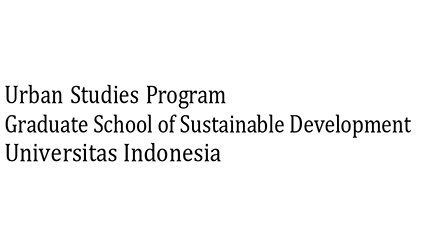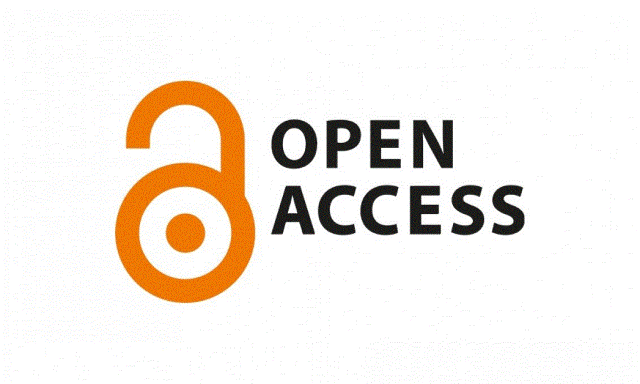Abstract
Background: The acceleration of the social and economic today has produced a new phenomenon and challenge: Environmental crisis. As a result, various studies from diverse disciplines and perspectives, seek to carry out various mitigative and preventive analyses and innovations. One of them is through a religious approach that is believed to influence the movement, especially in the context of Indonesia with a Muslim population of 240.62 million as the majority population in Indonesia and a total of 299,692 mosques.
Aims: This study seeks to study the role of one of the efforts made by the Indonesian Ulema Council (MUI) in the "EcoMasjid" program as an effort to move mosques which are considered not only religious spaces, but community spaces, and the epicenter of social growth.
Methods: Through a qualitative approach in the form of interview, observation, and literature study methods, the author uses several supporting concepts such as EcoMosque, Religious Creativity, and the Relationship between Religious Organizations and the social patterns of the community in social issues.
Results: The results of this study show that EcoMasjid as a program, in general, has an impact on improving the culture of environmentally friendly living. This is supported by several efforts such as infrastructure approaches, lectures related to environmental issues, and other communication with pilgrims.
Conclusion: This program still needs expansion in the context of participation, as well as the involvement of young people to bring innovations for the development of EcoMasjid in building closeness and relevance in the community.
References
Arrobi, M. Z., & Nadzifah, A. (2020). Otoritas Agama di Era Korona: Dari Fragmentasi Ke Konvergensi. Maarif, 15(1), 197-215.
Annur,Cindy Mutia. 2023, Populasi Muslim Indonesia Terbanyak di Asia Tenggara, Berapa Jumlahnya? https://databoks.katadata.co.id/datapublish/2023/10/19/populasi-muslim-indonesia-terbanyak-di-asia-tenggara-berapa-jumlahnya
Anriza Hirianto, R. F., & Adhihendra, B. G. (2022). Analisis Pengaruh Informasi Produk Ramah Lingkungan dan Budaya Ramah Lingkungan Terhadap Perilaku Ramah Lingkungan. Jurnal Bisnis dan Ekonomi, 28(2), 106–117. https://doi.org/10.35315/jbe.v28i2.8339
Ahamad, N. R., & Ariffin, M. (2018). Assessment of knowledge, attitude and practice towards sustainable consumption among university students in Selangor, Malaysia. Sustainable Production and Consumption, 16, 88–98. https://doi.org/10.1016/j.spc.2018.06.006
Basit, A. (2009). Strategi Pengembangan Masjid Bagi Generasi Muda. Komunika: Jurnal Dakwah dan Komunikasi, 3(2), 270–286. https://doi.org/10.24090/komunika.v3i2.130
BPS DKI Jakarta. (2022a). Jumlah Penduduk Menurut Agama dan Kabupaten/Kota di Provinsi DKI Jakarta (Jiwa), 2020-2022. https://jakarta.bps.go.id/indicator/12/844/1/jumlah-penduduk-menurut-agama-dan-kabupaten-kota-di-provinsi-dki-jakarta.html
BPS DKI Jakarta. (2022b). Jumlah Sarana Ibadah Menurut Kabupaten/Kota di Provinsi DKI Jakarta 2020-2022. https://jakarta.bps.go.id/indicator/27/605/1/jumlah-sarana-ibadah-menurut-kabupaten-kota-di-provinsi-dki-jakarta.html
DPRD DKI Jakarta. (2024). Kebutuhan Air Bersih Jadi Tantangan Jakarta Menuju Kota Global. DPRD Provinsi DKI Jakarta. https://dprd-dkijakartaprov.go.id/kebutuhan-air-bersih-jadi-tantangan-jakarta-menuju-kota-global/
Hooi Ting, D., & Chin Cheng, C. F. (2017). Measuring the marginal effect of pro-environmental behaviour: Guided learning and behavioural enhancement. Journal of Hospitality, Leisure, Sport & Tourism Education, 20, 16–26. https://doi.org/10.1016/j.jhlste.2016.12.001
Hidayat, M. F. (2015). Pendekatan Kebudayaan dalam Mendukung Upaya Pelestarian Lingkungan Studi Kasus terhadap Upaya Masyarakat dalam Pelestarian Lingkungan di Kabupaten Tuban.
Jenkins, W. (2010). Ecological management, cultural reform, and religious creativity.
Koehrsen, J. (2021). Muslims and climate change: How Islam, Muslim organizations, and religious leaders influence climate change perceptions and mitigation activities. WIREs Climate Change, 12(3). https://doi.org/10.1002/wcc.702
Koestanto, R. B. D. (2022, February 7). Paus Fransiskus: Membuang Plastik Di Sungai Adalah perbuatan kriminal. kompas.id. https://www.kompas.id/baca/internasional/2022/02/07/ paus-fransiskus-membuang-plastik-di-sungai-adalah-perbuatan-kriminal
Ogiemwonyi, O., Harun, A., Othman, B., Ismael, D., & Ali, R. (2019). Key Issues and Challenges of Green Consumer in Consuming Green Product an Insight from the emerging country: Malaysia. In International Journal of Psychosocial Rehabilitation (Vol. 23, p. 528). https://doi.org/10.37200/IJPR/V23I2/PR190313
Rizaty, Monavia Ayu. 2024. Data Jumlah Masjid di Indonesia Menurut Jenisnya per 7 Maret 2024. https://dataindonesia.id/varia/detail/data-jumlah-masjid-di-indonesia-menurut-jenisnya-per-7-maret-2024
PAM Jaya. (2019). Laporan Tahunan 2019—Mengembangkan Layanan Memenuhi Hak Warga Atas Air. https://ppid.pamjaya.co.id/assets/laporan/LPE20200908090056904. pdf
Prabowo, H. (2017). Ecomasjid: Dari Masjid Makmurkan Bumi. Lembaga Pemuliaan Lingkungan Hidup dan Sumber Daya Alam Majelis Ulama Indonesia.
Pérez-Escoda, A., Castro-Zubizarreta, A., & Fandos, M. (2016). Digital Skills in the Z Generation: Key Questions for a Curricular Introduction in Primary School. Comunicar, 24(49), 71–79. Retrieved from https://www.revistacomunicar.com/ojs/index.php/ comunicar/article/view/C49-2016-07
Puspadini, M. (2023, October 21). Paus Fransiskus Bicara Nasib Bumi, Ada Malapetaka Mengintai. CNBC Indonesia. https://www.cnbcindonesia.com/lifestyle/ 20231021163653-33-482537/paus-fransiskus-bicara-nasib-bumi-ada-malapetaka-mengintai
Rosa, N. (2024). Mengenal Tobat Ekologis, Istilah Peduli Lingkungan Dari Paus Fransiskus. detikedu. https://www.detik.com/edu/detikpedia/d-7155139/mengenal-tobat-ekologis-istilah-peduli-lingkungan-dari-paus-fransiskus
Smith, J. D., Adam, R., & Maarif, S. (2024). How social movements use religious creativity to address environmental crises in Indonesian local communities. Global Environmental Change, 84, 102772. https://doi.org/10.1016/j.gloenvcha.2023.102772
Šulyová, D., & Vodák, J. (2020). The impact of cultural aspects on building the smart city approach: Managing diversity in Europe (London), North America (New York) and Asia (Singapore). Sustainability, 12(22), 9463.
Purnami, W., Madu, F. J., & Utama, W. G. (2017). Pengembangan Modul pendidikan Lingkungan Hidup di Sekolah Dasar. Jurnal Pendidikan Dan Kebudayaan Missio, 9(2), 174–180. https://doi.org/10.36928/jpkm.v9i2.129
PLN. (2022). Statistik PLN 2022. https://web.pln.co.id/statics/uploads/2023/05/Statistik-PLN-2022-Final-2.pdf
Nudin, B. (2017). Peran Budaya Organisasi IPNU-IPPNU dalam Pengembangan Pendidikan Agama Islam di Kabupaten Sleman. El-Tarbawi, 10(1).
UN. (1972). United Nations Conference on the Human Environment, Stockholm 1972 | United Nations. https://www.un.org/en/conferences/environment/stockholm1972
Waruwu, M. (2023). Pendekatan Penelitian Pendidikan: Metode Penelitian Kualitatif, Metode Penelitian Kuantitatif dan Metode Penelitian Kombinasi. 7.
Wibisono, Fajar. D., A., Hariyanto. (2022). Pemberdayaan dan Pembinaan Ecomasjid Untuk Mewujudkan Masjid yang Nyaman dan Kondusif Sebagai Pusat Kegiatan Sosial dan Ibadah Desa Wonosari Kecamatan Ngoro Mojokerto. Jurnal Khidmatuna. Vol.1 No. 2.
Widodo, P. (2023). Pendekatan Religiusitas Untuk Mencegah Ancaman Kerusakan Lingkungan.
Yonathan, D., Setiadi, I., P., Rompas, K., B., S. (2021). Rencana Pelarangan Penggunaan Air Tanah di DKI Jakarta: Benturan Antara Kepentingan Pemerintah Dengan Hak Masyarakat. Jurnal Legislatif. Vol. 5 No. 1.
Recommended Citation
Purwanto, Heru; Imawan, Ficky Augusta; and Reynold, Wiliam
(2024)
"The Role of the “EcoMasjid” Program in Jakarta in the Development of Awareness of Eco-Friendly Living Culture,"
Cities and Urban Development Journal: Vol. 2:
No.
1, Article 4.
DOI: 10.7454/cudj.v2i1.1023
Available at:
https://scholarhub.ui.ac.id/cudj/vol2/iss1/4






